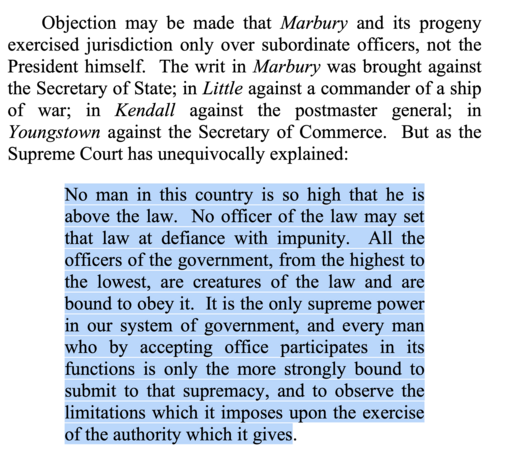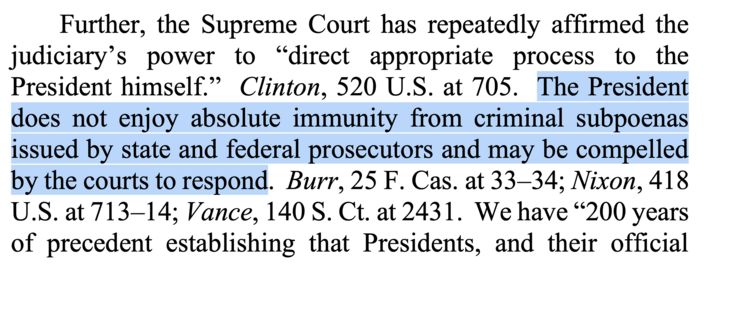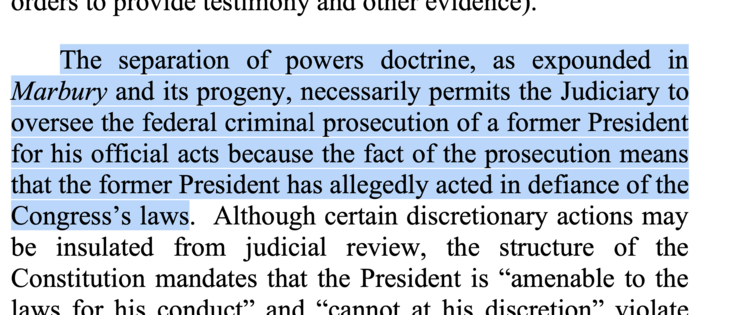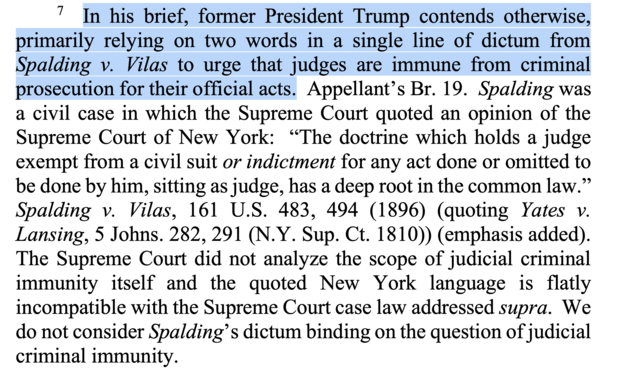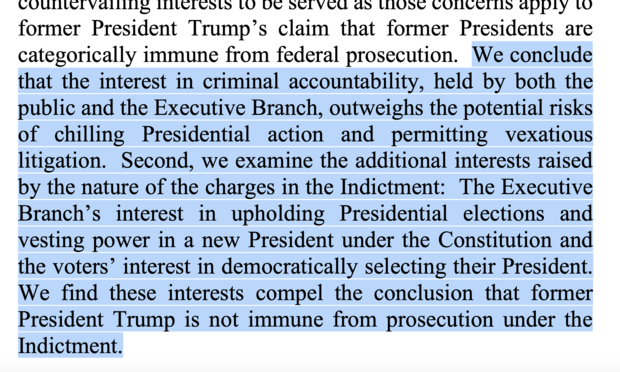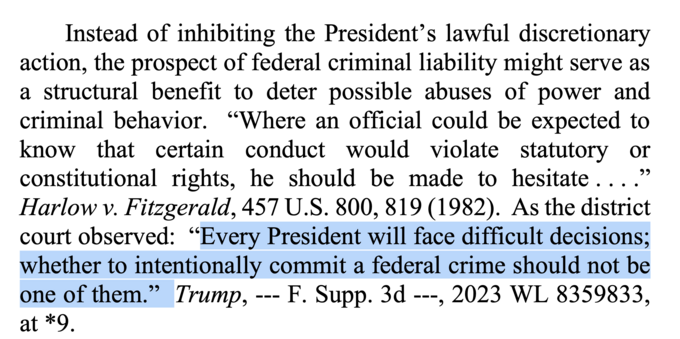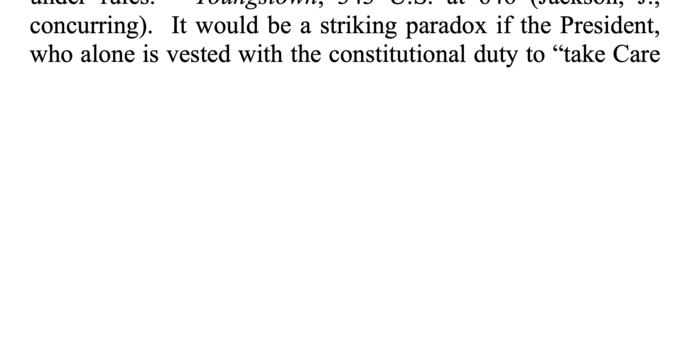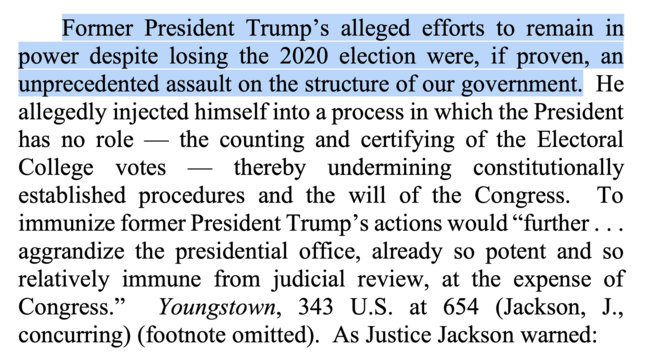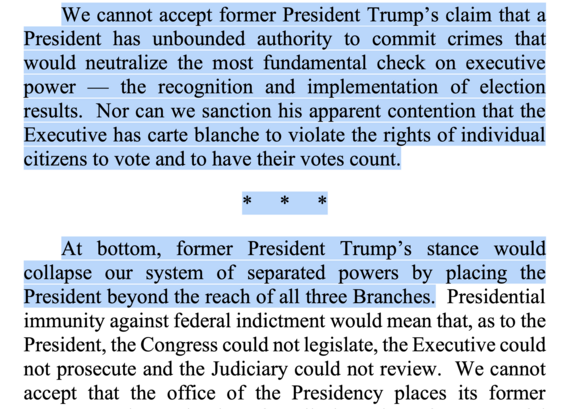Here is the appellate court's denial of Trump's claim of immunity:
https://storage.courtlistener.com/recap/gov.uscourts.cadc.40415/gov.uscourts.cadc.40415.1208593677.0.pdf
The decision opens by summarizing the allegations in the indictment, being careful to add that guilt hasn't yet been determined.
The court then dismisses the idea that they don't have jurisdiction over the issue and concludes that it does.
Then, on to immunity. The court rejects Trump's "separation of powers" argument, saying this:
That's strong language.
1/

